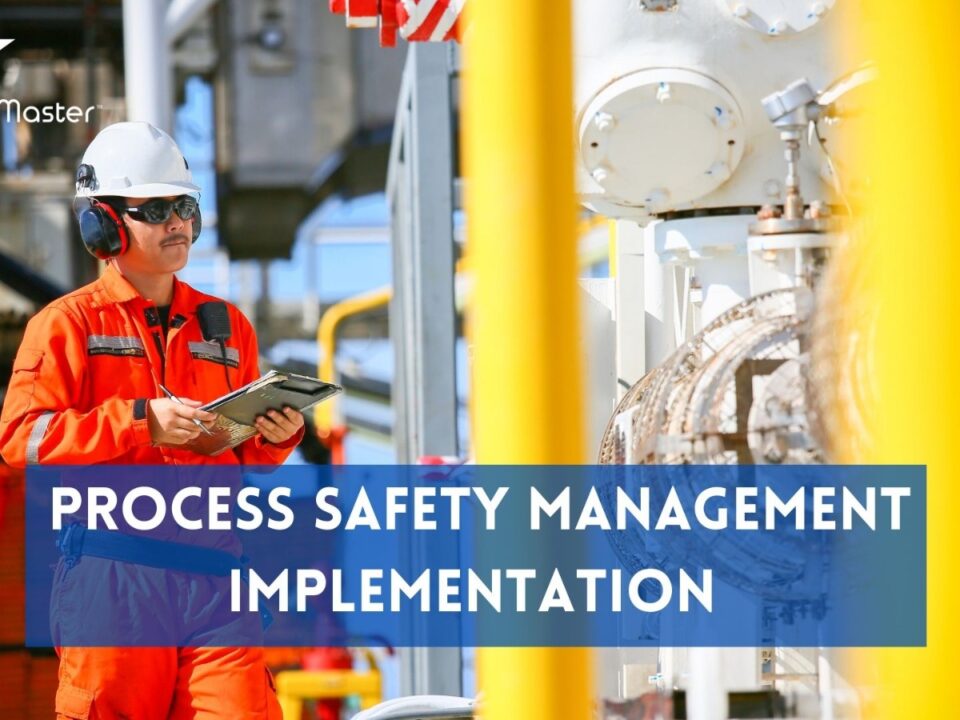The Importance of Process Safety Audit in Indian Industries: Mitigating Risks and Ensuring Standards Compliance

Understanding the Significance of Organizational Behaviour in the Context of Behaviour-Based Safety Implementation
November 18, 2024
Delving into Mechanical Integrity and Quality Assurance Programs: A Prerequisite for Success in Process Industries
November 22, 2024In this article, we delve into a crucial aspect that often goes unnoticed in Indian industries – the importance of process safety audits. As businesses strive for growth and productivity, they often overlook the risks that can arise from a lack of safety measures. However, by conducting regular audits, organizations can proactively identify potential hazards, ensure compliance with industry standards, and mitigate risks effectively. Join us as we explore the significance of process safety audits, highlighting their role in safeguarding both employees and the overall integrity of Indian industries. Discover how these audits promise a secure and compliant work environment, setting the stage for unparalleled success and peace of mind.
Introduction
In today’s fast-paced and highly competitive world, ensuring the safety and well-being of workers is of paramount importance for any industry. However, when it comes to process safety in Indian industries, there is a pressing need to address the risks and adhere to stringent standards. This is where process safety audits play a crucial role. Process safety audits are comprehensive assessments that evaluate the effectiveness of an organization’s systems, processes, and procedures in preventing accidents, mitigating risks, and ensuring compliance with regulatory requirements. These audits are essential for identifying potential hazards, improving safety measures, and ultimately fostering a culture of continuous improvement within industries
Understanding Process Safety Audit
Understanding Process Safety Audit – Process safety audit is a comprehensive examination of the systems, procedures, and practices implemented within an industrial setting to prevent accidents, minimize risks, and ensure the well-being of both employees and the environment. It involves a systematic review of various aspects such as equipment integrity, operational processes, emergency preparedness, training programs, and risk management strategies.
A successful process safety audit entails a thorough understanding of the industry-specific hazards and risks associated with different processes. It requires examining not only the physical aspects but also organizational structures and cultural factors that impact safety practices. By analyzing past incidents, near misses, and current safety protocols, organizations can identify gaps in their safety measures and implement corrective actions to enhance overall safety performance.
Optimistic Spin: Embracing process safety audits demonstrates an organization’s commitment to prioritize the well-being of its employees and safeguarding its operations. By understanding the intricacies of process safety audits thoroughly, organizations can proactively address potential hazards while fostering a culture of continuous improvement. The implementation of effective process safety measures not only ensures compliance with standards but also instills confidence among stakeholders regarding responsible business practices.
The Need for Process Safety Audit in Indian Industries
The Need for Process Safety Audit in Indian Industries: In the fast-paced and dynamic landscape of Indian industries, the need for process safety audits is paramount. With a rapid increase in technological advancements and complex industrial processes, ensuring the safety of workers, protecting the environment, and maintaining operational integrity have become critical concerns. The risk of catastrophic events, such as chemical spills or explosions, can have devastating consequences on human lives and the economy as a whole.
Process safety audits play a crucial role in identifying potential hazards and vulnerabilities within industrial operations. By thoroughly examining all aspects of a company’s processes, from equipment maintenance to emergency response protocols, these audits provide insights into areas that require improvement or modification. Moreover, they help organizations stay compliant with government regulations and international standards.
With an optimistic spin on this matter: Embracing process safety audits not only safeguards lives but also enhances productivity and fosters sustainable growth. By proactively addressing risks through effective auditing practices, Indian industries can create safer work environments that promote employee well-being while bolstering their reputation as responsible corporate citizens.
Regulatory Requirements and Standards for Process Safety Audit in India
Regulatory Requirements and Standards for Process Safety Audit in India: The field of process safety audit in Indian industries is governed by a comprehensive set of regulatory requirements and standards to ensure the highest level of safety and compliance. The primary authority responsible for overseeing process safety in India is the Ministry of Labour and Employment, which has issued several guidelines and regulations.
One such crucial regulation is the Factories Act, 1948. Under this act, every factory operating in India must comply with specific safety measures and conduct regular process safety audits to identify potential hazards and prevent accidents. Additionally, the Occupational Safety, Health, and Working Conditions Code (OSHWC) Bill 2020 further emphasizes the importance of process safety audits to safeguard workers’ well-being.
To promote a systematic approach towards process safety audits, various national bodies have formulated standards that serve as a benchmark for industries to meet. The National Safety Council (NSC) has developed guidelines specifically focusing on hazard identification, risk assessment techniques, emergency preparedness plans, training programs, and documentation processes.
Ensuring compliance with these regulatory requirements and standards not only guarantees worker safety but also enhances organizational reputation by demonstrating a commitment towards responsible business practices. By adhering to these guidelines effectively, Indian industries can create a safer work environment while boosting productivity and achieving sustainable growth.
Benefits of Conducting Process Safety Audits
Benefits of Conducting Process Safety Audits: Process safety audits offer numerous benefits to Indian industries, ensuring the protection of personnel, assets, and the environment. By systematically evaluating process safety practices and identifying potential hazards, organizations can proactively address risks and enhance operational excellence. One significant advantage of conducting these audits is the reduction in accidents and incidents that could result in injuries or loss of life. This not only creates a safer work environment but also boosts employee morale, fostering a culture of trust and collaboration.
Furthermore, process safety audits promote cost savings by identifying areas for improvement in operational efficiency. By examining safety management systems, emergency response protocols, and maintenance procedures, organizations can streamline processes to minimize downtime and maximize productivity. This helps companies maintain their competitive edge in the market while also reducing the financial burden associated with accident-related expenses.
Moreover, from a reputational standpoint, implementing process safety audits demonstrates a commitment to ethical business practices and sustainability. Customers are increasingly conscious about partnering with socially responsible organizations that prioritize the well-being of their workforce and stakeholders alike. By showcasing robust process safety measures through regular audits, companies can build trust among their clientele while establishing themselves as leaders in their respective industries.
In summary, conducting process safety audits yields myriad benefits for Indian industries encompassing enhanced employee safety standards, increased operational efficiency resulting in cost savings, and improved reputation as responsible corporate citizens dedicated to protecting people and the planet. These advantages contribute to sustainable growth while fostering a positive work atmosphere that nurtures innovation and success.
Key Elements of a Successful Process Safety Audit
Key Elements of a Successful Process Safety Audit:1. Rigorous Planning and Preparation: A successful process safety audit begins with meticulous planning and preparation. This involves defining the scope, objectives, and timeline of the audit, as well as assembling a competent and diverse audit team. The team should include experts from different disciplines who possess in-depth knowledge of the industry’s specific processes, hazards, and associated risks. By laying a solid foundation through careful planning, the audit can effectively identify potential vulnerabilities and ensure comprehensive risk mitigation strategies.
2. Thorough Documentation Review: An essential element of a successful process safety audit is conducting a thorough review of all relevant documentation. This includes examining standard operating procedures, safety manuals, incident reports, maintenance records, and previous audit findings. By scrutinizing these documents with meticulous attention to detail, auditors can gain valuable insights into past incidents or near-misses that highlight areas requiring improvement or corrective action.
3. On-Site Inspections and Observations: Conducting on-site inspections is crucial for assessing the effectiveness of safety measures in real-world scenarios. Auditors should observe operations first-hand to identify any deviations from established protocols or best practices. By engaging with frontline workers and operators during these inspections, auditors can gain valuable insights into their understanding of safety procedures and their commitment to adherence. This interactive approach not only helps identify areas for improvement but also fosters a culture of open communication and continuous improvement within the organization.
By focusing on these key elements during a process safety audit, organizations can proactively mitigate risks while fostering a culture of safety excellence within their operations
Steps to Conduct a Process Safety Audit
To conduct a thorough and effective process safety audit, several steps must be followed, ensuring no aspect is overlooked. It begins with planning and setting objectives for the audit, identifying key areas to focus on. This step is crucial as it lays the foundation for the entire process. Next, gathering relevant information and documentation is essential. This includes studying operating procedures, maintenance records, incident reports, and any previous audit findings. A comprehensive understanding of the facility’s processes and potential risks is important for a successful audit.
Once the information is gathered, it’s time to assess the actual implementation of safety measures on-site. This involves conducting physical inspections, observing operations, interviewing personnel involved in handling hazardous materials or processes, and reviewing safety training programs.
During this step, auditors should pay close attention to any deviations from established standards or best practices. They should also look out for any potential gaps in emergency response plans or inadequate preventive measures.
Finally, after collecting all necessary data and observations during the audit process, it’s crucial to compile detailed reports that highlight both strengths and areas of improvement. Recommendations must be clear-cut and actionable to enable organizations to implement corrective actions effectively.
By following these steps meticulously while conducting a process safety audit in Indian industries, companies can identify potential risks more accurately and implement necessary control measures promptly. Ultimately this leads to a safer work environment where employees can thrive while meeting their responsibilities conscientiously
Common Challenges in Implementing Process Safety Audits
Navigating the labyrinthine realm of process safety audits can pose several challenges for Indian industries. One such obstacle is the lack of awareness and understanding among stakeholders regarding the importance and intricacies of these audits. Many organizations view them as an additional burden rather than a proactive measure to ensure safety and compliance. Furthermore, resource constraints often hinder the effective implementation of process safety audits. Limited budgets, shortage of skilled professionals, and inadequate training programs can impede an organization’s ability to conduct thorough audits. This scarcity of resources becomes particularly prominent in small and medium-sized enterprises, where allocating funds for safety measures may not be a top priority.
Overcoming these challenges requires a shift in mindset towards viewing process safety audits as an investment rather than an expense. Organizations need to recognize that implementing robust audit practices can ultimately save costs by preventing accidents, reducing downtime, minimizing legal liabilities, and safeguarding their reputation.
By fostering a culture of continuous improvement and investing in training programs for employees, organizations can overcome these challenges and transform their approach to process safety audits. Embracing technological advancements such as automation tools for data collection and analysis can further streamline audit processes, making them more efficient and less resource-intensive.
In summary, while common challenges exist in implementing process safety audits in Indian industries, there is immense potential for growth through proactive measures. By viewing these challenges as opportunities for improvement rather than obstacles to success, organizations can create safer work environments while aligning with international standards – ultimately emerging stronger and more resilient.
Case Studies: Successful Implementation of Process Safety Audits in Indian Industries
The Case Studies section shed light on the successful implementation of process safety audits in various Indian industries. In one instance, a prominent chemical manufacturing company revamped its safety protocols after conducting a comprehensive audit, resulting in an impressive reduction of incidents by 60%. This exemplifies how diligent adherence to safety standards and regular audits can significantly mitigate risks and protect both employees and assets. Another inspiring case study comes from the pharmaceutical sector, where a leading drug manufacturing firm implemented a robust process safety audit framework. By identifying potential hazards and implementing necessary control measures, they achieved an exemplary safety record with zero accidents over the past three years. This success story demonstrates that investing in proactive safety measures not only safeguards lives but also promotes operational efficiency and fosters industry-wide trust.
Such case studies underline the positive impact that process safety audits have had on Indian industries. They highlight how meticulous evaluations of systems, equipment, procedures, and personnel competence play an instrumental role in creating safe working environments. By embracing these success stories as examples to follow, other industries can be encouraged to prioritize process safety audits to ensure their own achievements in reducing risks while elevating overall standards within their respective sectors.
Role of Process Safety Audit in Mitigating Risks
The Role of Process Safety Audit in Mitigating Risks: Process safety audits play a crucial role in mitigating risks within Indian industries. By identifying potential hazards, evaluating control measures, and assessing the effectiveness of safety protocols, these audits ensure that organizations take proactive measures to prevent accidents and protect human lives. Through comprehensive inspections and thorough analysis of systems and processes, process safety audits act as a shield against catastrophic incidents.
These audits not only focus on detecting existing vulnerabilities but also help in identifying potential risks that may arise from new technologies or changes in operating procedures. By systematically examining every aspect of operations, from equipment maintenance to emergency response plans, process safety audits enable organizations to address shortcomings and implement corrective actions effectively. With their rigorous scrutiny, these audits instill a culture of continuous improvement and risk reduction within the industrial landscape.
Implementing robust process safety audit programs goes beyond mere compliance with regulations; it reflects an organization’s commitment to fostering a safe working environment. By prioritizing employee well-being and emphasizing hazard identification and risk reduction, companies can create an atmosphere where workers feel valued, protected, and motivated to perform at their best. Ultimately, the role of process safety audit is not just about preventing accidents; it is about promoting a culture of safety where businesses thrive while ensuring the welfare of all stakeholders involved.
Ensuring Compliance with International Standards through Process Safety Audit
Ensuring Compliance with International Standards through Process Safety Audit: In the globalized world of today, adhering to international standards is crucial for Indian industries to maintain their reputation and competitiveness. The process safety audit serves as a powerful tool in ensuring compliance with these standards. By conducting thorough audits, industries can identify any gaps or deviations from international guidelines and take corrective measures to align their operations accordingly.
Process safety audits help Indian industries establish a strong framework that meets the requirements set forth by renowned international organizations such as the Occupational Safety and Health Administration (OSHA) and the International Organization for Standardization (ISO). These audits cover various aspects such as hazard identification, risk assessment, emergency preparedness, and safety management systems. By implementing effective process safety measures in line with these international standards, Indian industries can foster a culture of excellence in workplace safety.
Moreover, achieving compliance with international standards not only enhances the reputation of Indian industries but also opens up opportunities for collaboration and partnerships on a global scale. By demonstrating their commitment to maintaining high standards of process safety through regular audits, these industries position themselves as reliable partners in the international market. This not only boosts their credibility but also establishes them as leaders in their respective fields. Ultimately, ensuring compliance with international standards through process safety audit reinforces India’s position as a responsible player in the global industrial landscape.
Conclusion
In culmination, the significance of process safety audits in Indian industries cannot be overstated. By embracing these audits, companies can proactively identify and rectify potential risks, fostering a safer working environment for their employees and protecting valuable assets. Moreover, adherence to international standards through diligent process safety audits not only enhances the reputation of Indian industries but also opens doors to global collaborations and partnerships. As we forge ahead into a future of innovation and industrial growth, let us embrace the power of process safety audits as a catalyst for progress, fostering a harmonious synergy between industry and safety that leads to brighter horizons for all.




